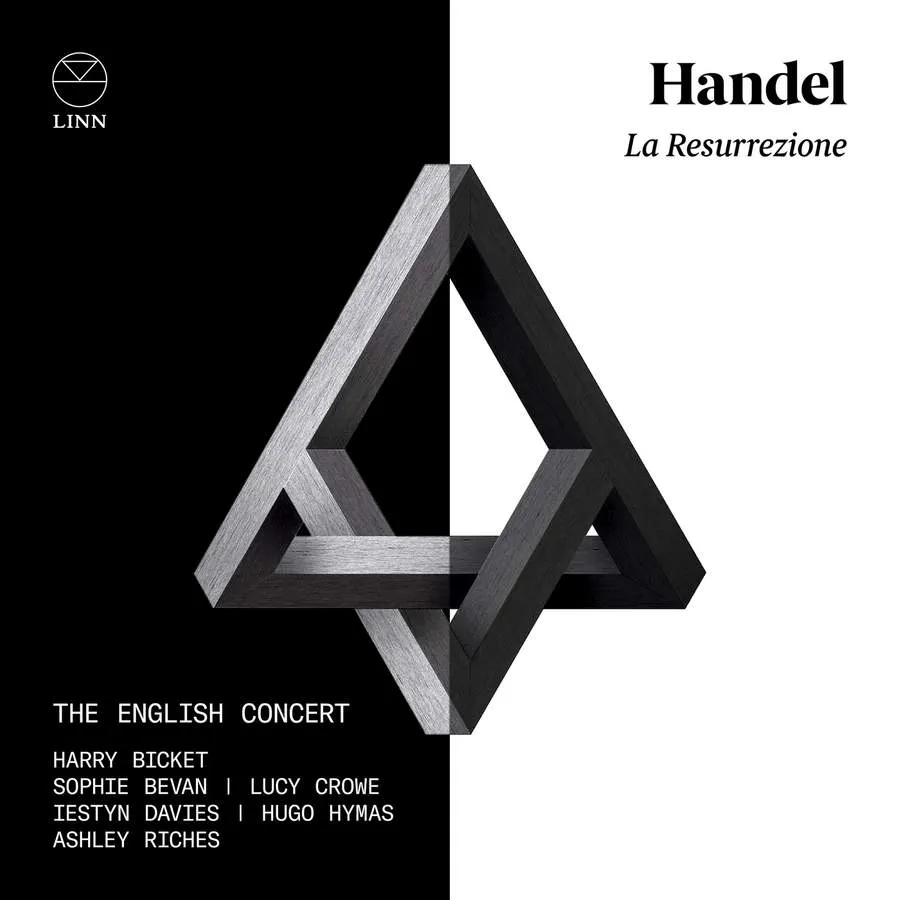
Handel La Resurrezione Sophie Bevan, Lucy Crowe, Iestyn Davies, Hugo Hymas, Ashley Riches; The English Concert/Harry Bicket Linn Records CKD675 117:18 mins (2 discs)
La Resurrezione is one of Handel’s greatest works, and Harry Bicket has gifted us its greatest recording. In 1708 the young Handel, a hot favourite of Roman patrons, created a score bursting with confidence and sensuality. Bicket and his stellar cast embrace Handel’s radical approach, turning sacred figures – the Angel (soprano Lucy Crowe), Lucifer (bass Ashley Riches), Mary Magdalene (soprano Sophie Bevan), Mary Cleophas (countertenor Iestyn Davies) and John the Evangelist (tenor Hugo Hymas) – into intensely dramatic ones. Handel gave instruments their own actor-like parts, which The English Concert deliver ravishingly.
Beyond two star castrati, Handel had a huge orchestra and superb libretto to work with. None other than Arcangelo Corelli led a 37-man string section, complemented by woodwinds, two trumpets and a trombone. Librettist Carlo Sigismondo Capece’s scenes toggle between spiritual and historical persons: the Angel and Lucifer duel, while Christ’s followers mourn his crucifixion and rejoice in his resurrection. Bicket meets all this history on his own terms, keeping his band’s string section its usual size and casting just one male alto for Handel’s two castrati. But he matches Handel in daring, with dazzling bravura airs giving way to slow movements of a revelatory stillness.
One of Handel’s biggest experiments in La Resurrezione was to have the overture run into its first aria, sung by the Angel. Crowe answers this stroke with her own: in the repeat she bounds up into the stratosphere, where she pirouettes elegantly into a sustained top C-sharp final note. Such divine vocalism is characteristic of Crowe’s overall performance – technically jaw-dropping, dramatically riveting and musically radiant.
While the Angel soars, Lucifer rages, and Riches dignifies his parodic extremes with easy execution. Magdalene’s and Cleophas’s numbers are musically simpler but affectively more complex, a challenge which Bevan and Davies take as an opportunity. Magdalene has the most arias, and the most mournful ones, with a stripped-back accompaniment that throws the instrumental solos into stark relief; for these, Bicket suspends the pulse to accommodate Bevan drawing out the hushed lyricism of Handel’s line. She applies vibrato to straight tone, rather than the other way around, to convey the intensity of Magdalene’s expressions. Cleophas shares and alters her moods, nudging Magdalene into hope in their exquisite duet ‘Dolci chiodi’ before pivoting to joy in ‘Vedo il ciel che più sereno’. In the A-section repeat of this brisk number, Davies upshifts into full-throated virtuosity, dispatching passagi-stuffed melodies wholly unlike Handel’s original. Oddly for a work led by castrati, La Resurrezione climaxes in the tenor’s final number, ‘Caro figlio’. Here Hymas, gorgeous throughout as John the Evangelist, creates five minutes of blissed-out lyricism, languidly winding his melody around that of the violincello.
You will recognise much of this music: Handel stole from earlier works to compose La Resurrezione, from which he then self-borrowed for decades. The artists also plunder Handel’s score, enriching us with a trove of their own ideas.
Berta Joncus
More reviews
